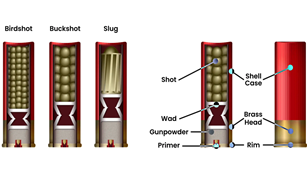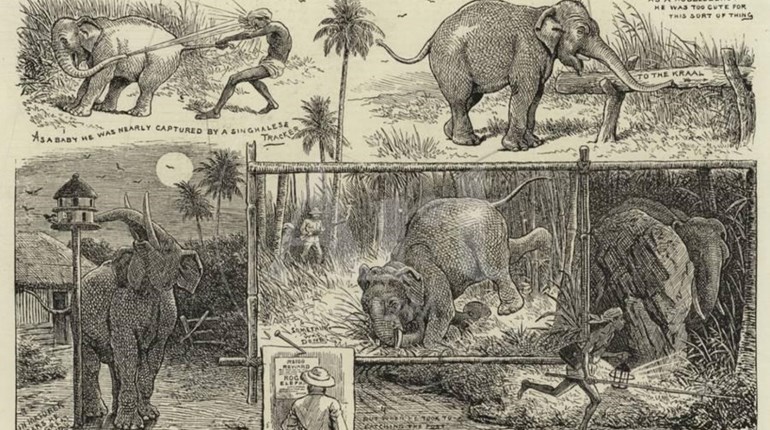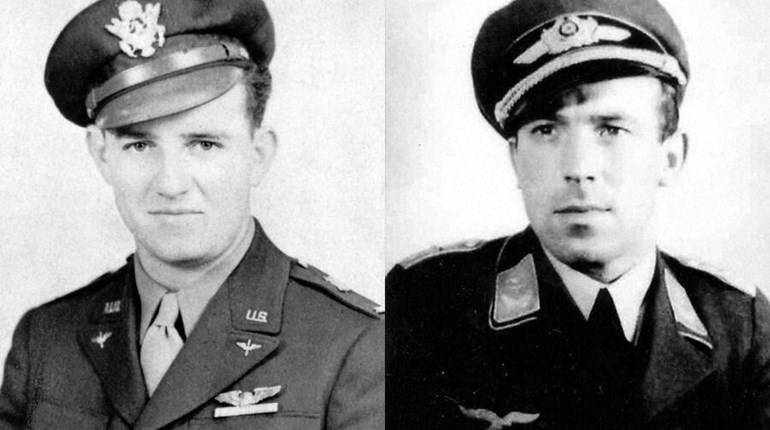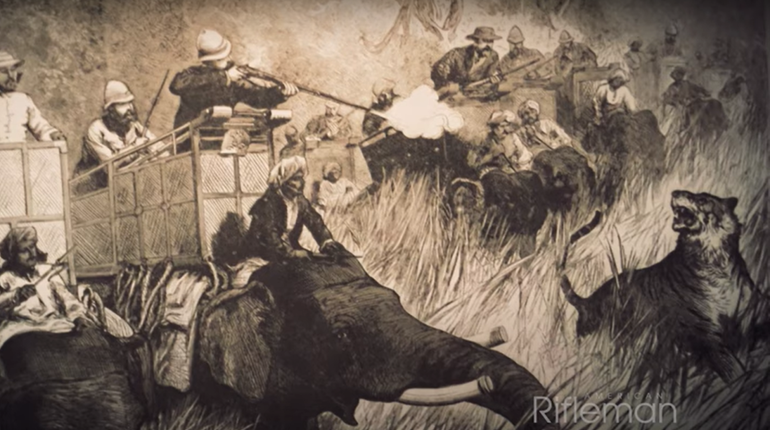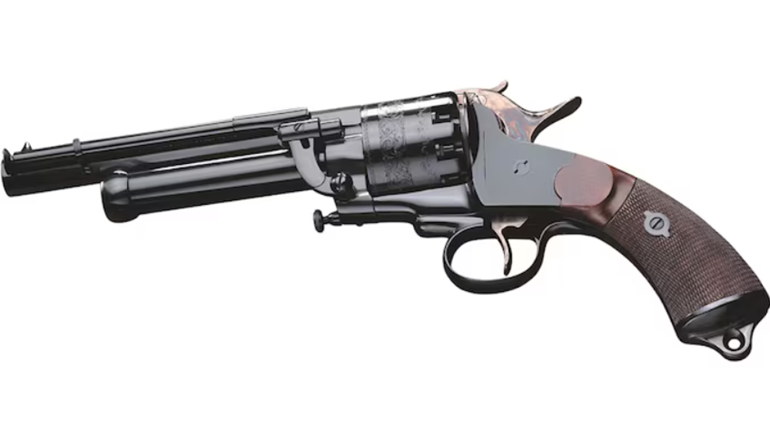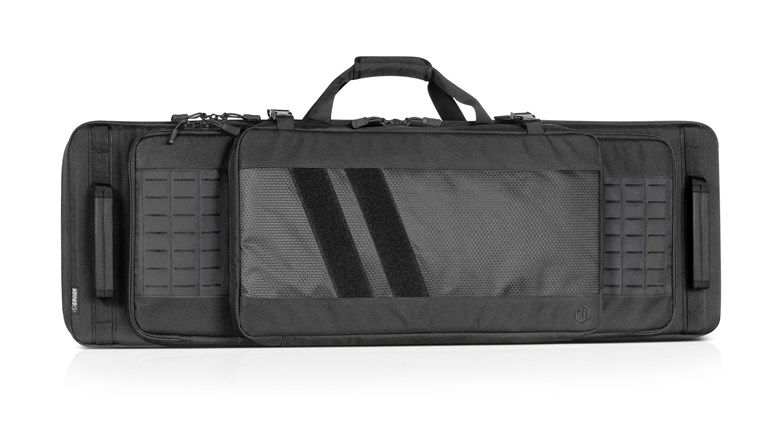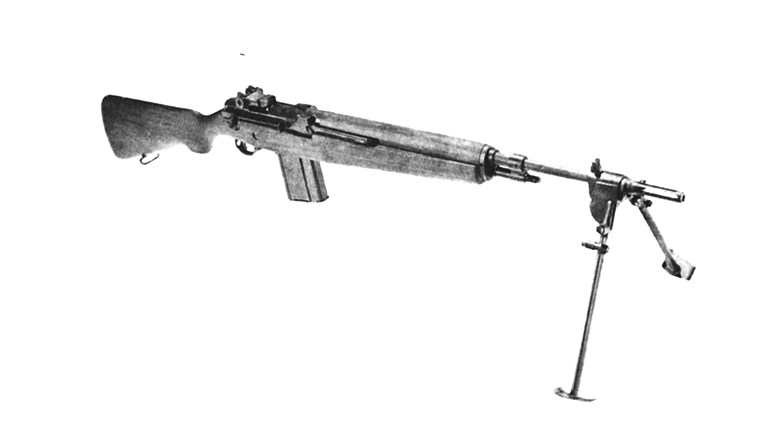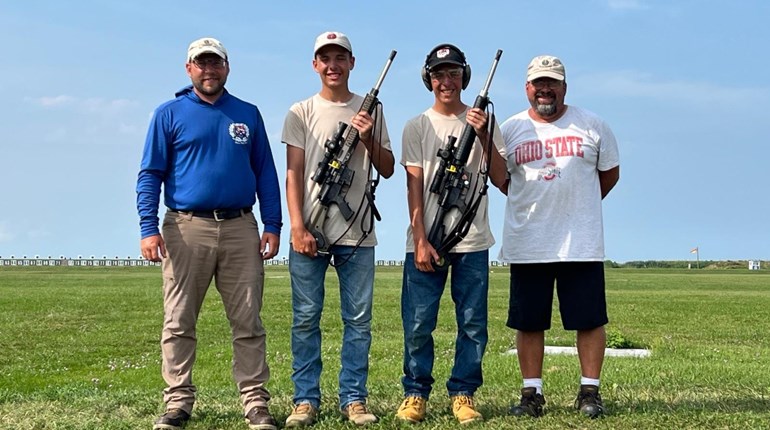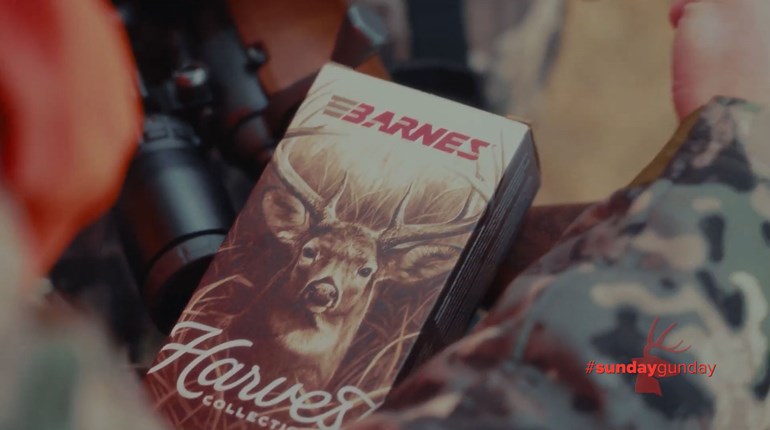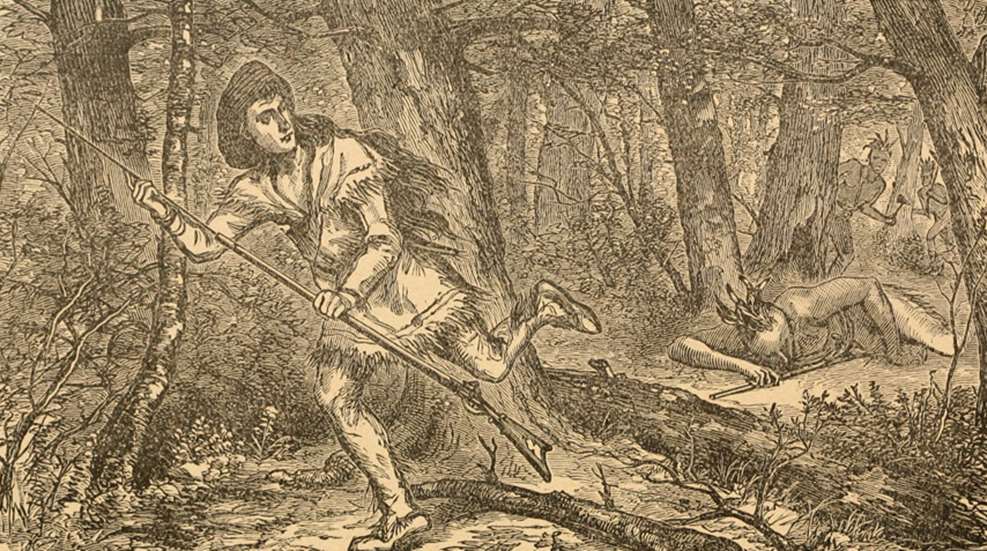
If loading a muzzleloading rifle sounds difficult to you, imagine reloading while running. Very few frontiersmen ever mastered reloading on the run, but those who did had a decided survival advantage. One of the best at it was Lewis Wetzel; this wilderness skill saved his own life and that of other frontiersmen more than once.
Lewis Wetzel (1763-1808) was the son of a German emigrant, John Wetzel, and his wife, Mary Bonnet. In 1770, the Wetzel and Bonnet families moved from Pennsylvania to the Wheeling Creek area of what is now the northern panhandle of West Virginia. The Wetzels settled on a section far upstream from the Ohio River in an isolated location, making them vulnerable to Indian attack.
Seven years later, in 1777, young Lewis (age 13) and his younger brother Jacob (age 11) were captured by Wyandot Indians, but managed to escape. During the struggle, Lewis was shot at and grazed across the chest. Vowing revenge, he swore to kill any Indian whenever and wherever he got the chance. It was a solemn vow he would keep all his life, made only stronger in later years by the deaths of his father and one of his brothers, in separate incidents, at the hands of Indians.
The secret to Wetzel’s rapid reloading technique was that he carried a few extra lead bullets in his mouth to speed up the process. Primitive flintlock rifles of the time were only good for one shot, then had to be laboriously recharged. Pouring the proper amount of black powder from a powder horn down the barrel, tamping a patch and bullet into place with a ramrod, and then adding more powder to the gunlock’s firing pan is an exacting procedure while standing still, let alone while being pursued by fleet-footed warriors intent on killing you.
The Indians claimed that Wetzel’s rifle was miraculously always loaded. As a result, he became one of their greatest, most feared and most respected enemies. The Shawnees called him Long Knife; the Hurons, Destroyer; and the Delaware, Death Wind.
Wetzel scalped the many Indians he killed, keeping their scalp locks as trophies. At the same time, he taunted the various tribes by growing his own coal-black hair as long as possible, nearly knee length, challenging warriors to take it from him. None ever did, but many had their chance.
In 1782, when young Tom Mills, Jr. knocked on the door of Lewis Wetzel’s wilderness cabin, he knew he needed the help of an experienced Indian fighter. It seems he had borrowed his father’s prized horse, a fine gray gelding, but had had to abandon it north of the Ohio River while traveling through Indian country. The horse had become lame, so Mills—afraid of tarrying in hostile territory alone any longer than necessary—removed and hid the saddle, hung a small bell around the horse’s neck, and turned the animal loose to fend for itself. He figured to hike the remaining 18 miles home, get help, then return as soon as possible to retrieve the horse and expensive saddle.
When Wetzel first heard the young man’s plan, he was skeptical. Not only did Mills want to go back across the river where recently Indian sign was thick as ticks on a hound’s ear, but he wanted to take along his friend, Joshua Davis. It was true that Davis was strongly built, but he was only 15 years old. Mills finally persuaded Wetzel by handing him a French crown, promising him three more of the coins when they returned, whether they recovered the horse or not.
As the trio reached the south shore of the Ohio River at dawn the next morning, Wetzel gave the young men one last chance to rethink what they were getting into. “This is a dangerous thing were settin’ out on,” he warned. “Iffen you boys don’t back out now and call this off, be prepared to fight, ‘cause chances are you’re gonna have to.”
Davis and Mills looked at each other, swallowed hard and chose to continue. The group then crossed the river by canoe.
Once on the north shore, Wetzel moved rapidly along the Wheeling Road trail, the younger men struggling to keep up. And as he moved, Wetzel studied the ground intently while at the same time listening to every sound from the surrounding woods.
By late morning they were approaching the place where Mills had abandoned the horse when Wetzel pointed to a hoofprint in the mud, not an hour old. They quietly followed the tracks, and within two more miles heard the tinkle of a bell. Elated, Mills sprinted ahead. He didn't hear the hissed warning from Wetzel—who had just detected a fresh moccasin print atop the horse’s hoofprint.
Within moments there was a roar of gunfire 50 yards up the trail and Mills fell to the ground with a scream, holding his left leg; a large lead rifle ball had fractured his femur. Wetzel was creased by a bullet that nicked his hip, but Davis was not hit. It was then that a dozen Delaware warriors burst from cover and surged toward them.
Wetzel instinctively threw his flintlock to his shoulder, fired and killed a warrior. Davis fired, too, but hit nothing. “Run!” Wetzel shouted at Davis. And as the boy sprinted back down the trail he looked behind him just once, in time to see his friend Tom Mills tomahawked and killed.
Four of the Indians dropped their empty rifles and pursued Wetzel and Davis, thinking the two white men’s guns were unloaded. Davis’s surely was, but not Wetzel’s. When the Indians got within a dozen yards Wetzel stopped, turned, and fired a second time, putting a ball through a warrior’s chest.
The chase then continued, the remaining three Indians now certain Wetzel’s rifle was empty. One of the braves even overtook him and for a few seconds they wrestled for the weapon, with Wetzel finally ripping the gun’s barrel from the Indian’s grasp and shooting him in the throat.
Davis was still running several yards ahead but tiring when Wetzel yelled at him. “Josh, soon as you clear that bend ahead, dive into cover and lay still. I’ll come back for ya…”
Davis did as instructed, rolling downhill about 20 feet and lying stone still as soon as he came to rest. When he dared look up, he saw Wetzel run past, reloading his rifle yet again.
When the last two pursuing Indians rounded the bend in the trail, Wetzel was ready for them. He fired a fourth time and yet another warrior fell, a ball in his leg. Shrieking with rage, the remaining Indian helped his companion up and the two retreated back up the trail.
Several minutes later, Davis heard Wetzel softly calling his name. “Josh,” he whispered. “Come on out…let’s get the hell outta here!”
Lewis Wetzel’s grave is in McCreary Cemetery in Marshall County, West Virginia. The gray headstone reads simply, in part: Legendary Frontier Scout, Lewis Wetzel, “Death Wind.”









